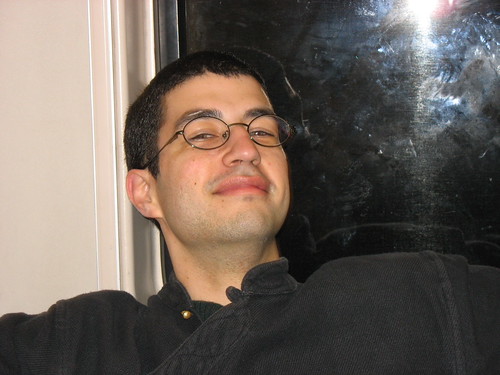
Begin: 04/01/07
End: 04/06/07
Quality: Nine Out of Ten.
Reason:. Reading Plan.
Genre: Classics. Epic Poetry. Italian Literature
Original Language: Italian.
Date of Publication: 1314.
Fog Index: 11.5/63% are harder.
Flesch Index: 64.4/73% are harder.
Flesch-Kincaid Index: 8.8/66% are harder.
Complex Words: 10%/71% have more complex words.
Number: Once?
I always have an easier time getting through the Inferno than the other two sections of the Divine Comedy. It does help that because of my previous readings, I have a good sense of the structure of the three areas and pre-knowledge.
As when I was reading the Inferno, I was constantly amazed at how Dante seems to have two idols, Christianity and the Roman Republic. Cato guards the approach to Purgatory. (This, by the way, is a giant mountain directly opposite of Jerusalem and the only land on the southern hemisphere) Why are so many pagans stuck in Limbo, including Virgil, when Cato seems to have taken up a post of authority? Why does Cato get off so easy when Brutus is in Satan’s mouth?
Again, medieval theology is so depressing. The terraces of Purgatory, I guess, are a little better than Hell since you have a chance to get out to paradise but still. You have your eyelids sewed shut? What kind of sick masochist thinks that shit up?
I have to say though that I was happy that some of my fellow faggots got to be in purgatory. I was a little worried that we were all stuck in Seventh Circle of Hell, but I guess if you suck dick and love jesus, you get stuck in the seventh terrace of purgatory. Well, that’s a relief! If I start loving Jesus, I’m set!!
I was thinking that when Dante and Beatrice met, it was going to be glorious and loving, ect. Wow. She tore him a new one, huh?
Anyway. Here’s some quotes.
“The world indeed has been stripped utterly/of every virtue; as you said to me, /it cloaks-and is cloaked by-perversity.” (58-59/Canto XVI)
“Brother,/the world is blind, and you come from the world,/You living one continue to assign/to heaven every cause, as if it were/the necessary source of every motion./If this were so, then your free will would be/destroyed, and there would be no equity/in joy for doing good, in grief for evil./The heavens set your appetites in motion-/not all your appetites, but even if/that were the case, you have received both light/on good and evil, and free will, which though/it struggle in its first wars with the heavens,/then conquers all,if it has been well nurtured./On greater power and a better nature/you, who are free, depend; that Force engenders/the mind in you, outside the heavens’ sway./Thus, if the present world has gone astray/in you is the cause, in your it’s to be sought;” (65-83. Canto XVI)
o humankind, born for the upward flight,Why are you drive back by wind so slighy?” (95-96, Canto XII)
End: 04/06/07
Quality: Nine Out of Ten.
Reason:. Reading Plan.
Genre: Classics. Epic Poetry. Italian Literature
Original Language: Italian.
Date of Publication: 1314.
Fog Index: 11.5/63% are harder.
Flesch Index: 64.4/73% are harder.
Flesch-Kincaid Index: 8.8/66% are harder.
Complex Words: 10%/71% have more complex words.
Number: Once?
I always have an easier time getting through the Inferno than the other two sections of the Divine Comedy. It does help that because of my previous readings, I have a good sense of the structure of the three areas and pre-knowledge.
As when I was reading the Inferno, I was constantly amazed at how Dante seems to have two idols, Christianity and the Roman Republic. Cato guards the approach to Purgatory. (This, by the way, is a giant mountain directly opposite of Jerusalem and the only land on the southern hemisphere) Why are so many pagans stuck in Limbo, including Virgil, when Cato seems to have taken up a post of authority? Why does Cato get off so easy when Brutus is in Satan’s mouth?
Again, medieval theology is so depressing. The terraces of Purgatory, I guess, are a little better than Hell since you have a chance to get out to paradise but still. You have your eyelids sewed shut? What kind of sick masochist thinks that shit up?
I have to say though that I was happy that some of my fellow faggots got to be in purgatory. I was a little worried that we were all stuck in Seventh Circle of Hell, but I guess if you suck dick and love jesus, you get stuck in the seventh terrace of purgatory. Well, that’s a relief! If I start loving Jesus, I’m set!!
I was thinking that when Dante and Beatrice met, it was going to be glorious and loving, ect. Wow. She tore him a new one, huh?
Anyway. Here’s some quotes.
“The world indeed has been stripped utterly/of every virtue; as you said to me, /it cloaks-and is cloaked by-perversity.” (58-59/Canto XVI)
“Brother,/the world is blind, and you come from the world,/You living one continue to assign/to heaven every cause, as if it were/the necessary source of every motion./If this were so, then your free will would be/destroyed, and there would be no equity/in joy for doing good, in grief for evil./The heavens set your appetites in motion-/not all your appetites, but even if/that were the case, you have received both light/on good and evil, and free will, which though/it struggle in its first wars with the heavens,/then conquers all,if it has been well nurtured./On greater power and a better nature/you, who are free, depend; that Force engenders/the mind in you, outside the heavens’ sway./Thus, if the present world has gone astray/in you is the cause, in your it’s to be sought;” (65-83. Canto XVI)
o humankind, born for the upward flight,Why are you drive back by wind so slighy?” (95-96, Canto XII)

No comments:
Post a Comment